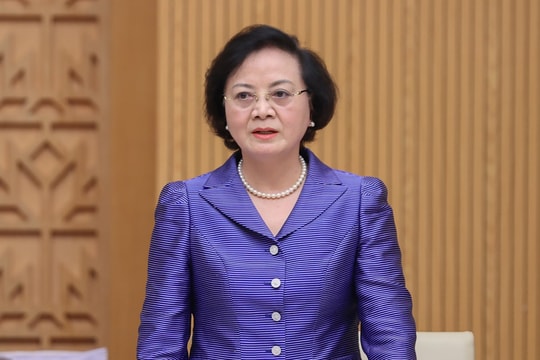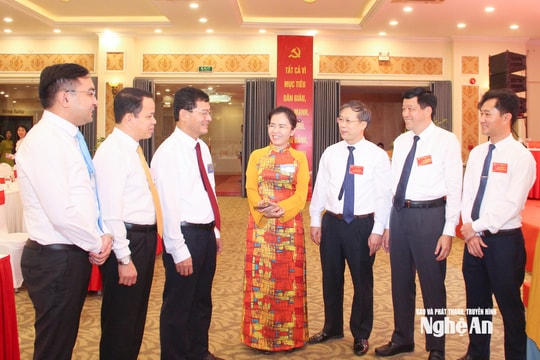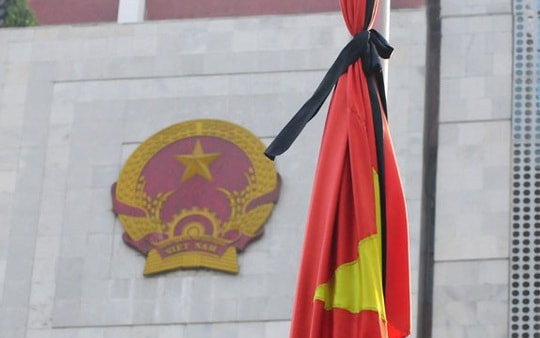Need to set an example in obeying and enforcing the law
(Baonghean) - Our Party and State always attach importance to the exemplary role of cadres. However, currently, many cadres and civil servants, including party members, have lost themselves, violated the law, violated things that party members are not allowed to do, and become "bad examples" for the masses.
Violation of law and party discipline
Every citizen must comply with the law and be equal before the law. That is obvious, however, as officials and civil servants in the political system, they must be more conscious of complying with and enforcing the law, be more exemplary, and be more serious to create a ripple effect in society.
The first principle in performing public duties stipulated in the Law on Cadres and Civil Servants is: “Comply with the Constitution and the law”. In the 19 things that party members are not allowed to do, it is also clearly stated that party members are not allowed to “do things that are not permitted by law”, “abuse power, or harass when performing duties”...
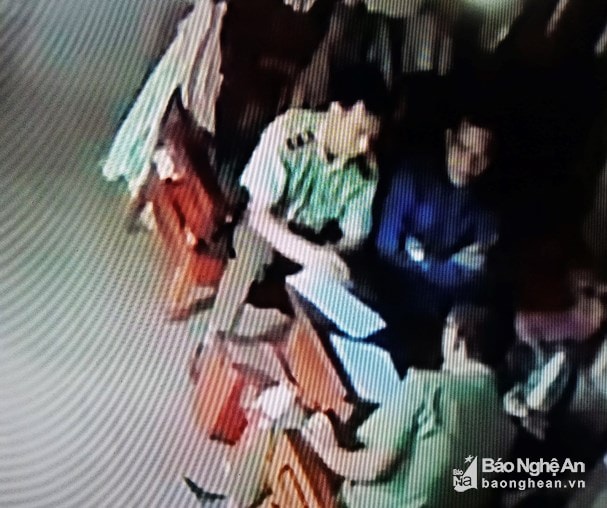 |
| Camera images recorded a group of management staff coming to Mr. Vi Van Hung's house (Thanh Chuong). Documentary photo |
However, in recent times, there have been many cases where officials and party members have violated the law, leading to prosecution by authorities and party disciplinary action. For example, in Phuc Thanh commune (Yen Thanh), due to the unauthorized sale of more than 280 plots of land and the collection of more than 22 billion VND, many officials, including the former Party Secretary, Chairman of the Commune People's Committee; former Vice Chairman of the Commune People's Committee, Chief Accountant; and cadastral officer of this commune, have been prosecuted for the crime of "Abuse of power while performing official duties". In addition to being responsible before the law, the former Party Secretary and Chairman of the Commune People's Committee of Phuc Thanh commune was also expelled from the Party.
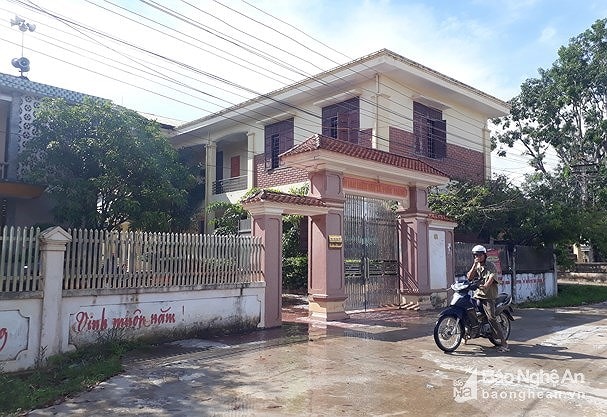 |
| Many officials of Phuc Thanh commune (Yen Thanh) were prosecuted for the crime of "Abuse of power in the performance of official duties". In the photo is the Phuc Thanh commune headquarters. Photo: Document |
Similarly, in June 2018, the Provincial Police broke up Project 418D, prosecuted the case, prosecuted the accused, and temporarily detained the subjects who were the former Chairman of the Commune People's Committee, Secretary of the Commune Party Committee and cadastral officers of Nghia Thai Commune, Tan Ky District for the act of "Abuse of power while performing official duties". The investigation process clarified that from 2001 to 2006, the above subjects had illegally sold land to households in the area with a total area of 77,742 m2 (143 plots of land), causing damage to the State in the amount of 1,562,992,000 VND.
Also related to crimes related to positions, on August 14, 2018, Vinh City Police broke up Project 418T, arrested and prosecuted 4 defendants who were former officials of Dong Vinh Cooperative for "Forgery in work" to appropriate the State budget of the Nghi Kim - Nghi Van drainage canal construction project, causing a loss of more than 640 million VND.
In addition, there are many cases where cadres and party members have been prosecuted and disciplined for gambling, fraud, drug trafficking and other social evils, causing loss of trust among the masses, affecting the prestige of the Party organization, and the management and direction of state authorities at all levels.
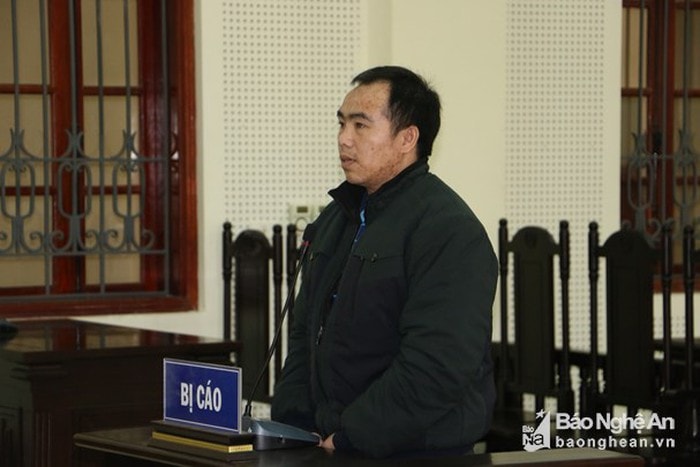 |
| Defendant Vu Ba Xenh, former teacher at Tay Son Primary School, Ky Son, was sentenced to death by the People's Court of Nghe An province for drug trafficking. Photo: document |
In addition to the violations of the law that were prosecuted, in 2018, there were incidents in the province related to the conduct, qualities, and ethics of party members that negatively affected public opinion. For example, the Deputy Secretary of the Party Committee of Nghia Binh Commune (Tan Ky) was disciplined by the Party in the form of a warning for punching the Chief of Police of the commune in the chest while he was on duty. After consideration, the Inspection Committee of Tan Ky District Party Committee concluded that the behavior of the Deputy Secretary of the Party Committee of the commune "negatively affected the image, qualities, ethics, and lifestyle of cadres and party members.
Or the incident where the Chairman of the Veterans Association of a locality in Vinh city was denounced by the people, then the authorities clarified, recovered the amount of money wrongfully and received Party discipline in the form of a warning due to the act of declaring false documents to receive war invalids' benefits. Or the offensive act of throwing a chair at a female colleague due to a conflict between a male head of the administrative organization department of a district-level hospital... are all sad stories that happened in the past year.
These behaviors are not only manifestations of degradation, "self-evolution", "self-transformation", and violations of public ethics of cadres, civil servants, and party members, but also relate to Party discipline, State laws, and have negative impacts on public opinion.
In 2018, Nghe An provincial authorities discovered and prosecuted 5 cases, 18 defendants for crimes related to positions; corruption, an increase of 1 case, 15 defendants compared to the same period. Of which, 1 case, 4 defendants committed the crime of "Lack of responsibility causing serious consequences"; 1 case, 1 defendant committed the crime of "Abuse of position and power to appropriate property"; 1 case, 4 defendants committed the crime of "Forgery in work".
Clause 5, Article 2 of Regulation 102-QD/TW, dated November 15, 2017 of the Politburo on disciplinary action against party members who violate the law clearly states: Party members who violate the law to the extent that they must be prosecuted for criminal liability must be prosecuted for criminal liability, not "handled internally"; if sentenced by a court to a sentence of non-custodial reform or higher, they must be expelled; if they are sentenced to a sentence lower than non-custodial reform or are exempted from criminal prosecution, or are administratively sanctioned, then depending on the content, level, nature, harm, cause of the violation and aggravating or mitigating circumstances, party discipline will be considered and implemented appropriately.
Tighten administrative discipline and public service discipline
The cause of the situation of cadres, civil servants, and party members violating the law, violating public ethics and things that party members are not allowed to do, in addition to the lack of self-cultivation, training, and moral and lifestyle degradation of each individual, is also the responsibility of the Party Committee, the government, and heads of agencies and units in the work of inspecting and supervising public service activities to prevent, detect, and promptly handle signs of degradation or negative and corrupt behaviors.
The recent case of two officers of Market Management Team No. 8 (under the Market Management Department of Nghe An province) being prosecuted and temporarily detained by the Investigation Police Agency (Thanh Chuong District Police) for abusing their positions and powers to appropriate property (6 million VND) of Mr. Vi Van Hung, a herbal medicine practitioner, is a typical example.
The amount of the violation is not large, but it is a painful lesson for many officials and civil servants in the performance of their duties as well as for agencies and units in the management and education of officials and civil servants. Because in reality, in some places, inspection and supervision are not carried out regularly and promptly, so when violations are discovered, it is too late, not only losing officials and party members but also affecting the trust of the people.
In addition, in some cases, when violations by officials and civil servants are discovered, they are not strictly handled, and there are even signs of covering up and blocking information for fear of affecting the achievements and reputation of the collective.
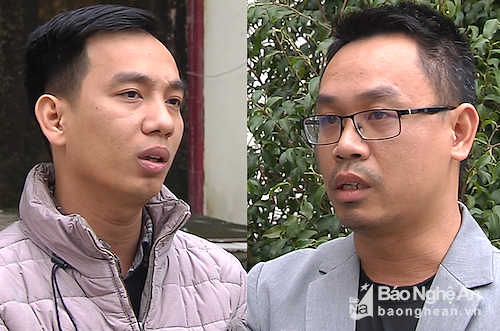 |
| Two market management officers were prosecuted for abusing their positions and powers to appropriate property. Photo: document |
To prevent and promptly stop manifestations of "self-evolution", "self-transformation", and violations of public ethics by cadres and civil servants in general and party members in particular, grassroots party organizations, agencies, units, and localities need to strictly maintain party discipline, tighten administrative discipline, and public service discipline.
In addition, it is also necessary to strictly handle violations combined with education to improve public ethics, promote anti-corruption work to prevent officials and party members from violating the law and violating things that party members are not allowed to do.
However, the most important thing is that every cadre, civil servant, especially a Party member, must constantly cultivate himself, train himself and voluntarily "set an example" in complying with Party discipline, administrative discipline, public service discipline and the State's legal policies. Do not turn yourself into a large part of the "public servants" who have degraded in morality and lifestyle, becoming "bad examples" that are turned away by the masses and condemned by society...
Civil servants who violate the law will be handled according to Decree No. 34/2011/ND-CP regulating disciplinary actions against civil servants. Disciplinary actions include:
1. Violating the performance of duties, ethics and communication culture of civil servants in the performance of public duties; things that civil servants are not allowed to do as prescribed in the Law on Cadres and Civil Servants.
2. Violations of the law are convicted by a Court with a legally effective judgment.
3. Violating the provisions of the law on anti-corruption; practicing thrift, combating waste; gender equality; preventing and combating prostitution and other provisions of the law related to civil servants but not to the extent of being prosecuted for criminal liability.

.jpg)

